Professional Conduct and Ethics in the Workplace
Overview
Develop the knowledge and awareness needed to maintain professionalism and strong ethical behaviour in today’s diverse and dynamic work environments. This course is ideal for employees, managers, and anyone entering the workforce who wants to build a solid foundation of ethical and responsible workplace conduct.
Professional conduct and ethics are essential for creating respectful, inclusive, and legally compliant workspaces. In this course, you’ll explore the behaviours, values, and decision-making skills that contribute to a positive and productive organisational culture.
You will learn how to:
Apply ethical principles in everyday workplace situations
Maintain professionalism in verbal, written, and digital communication
Recognise and respond to unethical behaviour
Contribute to a respectful and inclusive working environment
Understand your role in building workplace trust and integrity.
This course helps you understand what professionalism looks like in action and how strong ethics support better relationships, fewer conflicts, and a more successful career.
Description
This unit standard introduces ethics in a business environment and focuses on ethics and the learner. The qualifying learner can reflect on their values and belief systems and how they influence their behaviour. Discussing how an individual’s ethics impact the people around him/her. Explaining how an individual can behave ethically in a business context. Demonstrate techniques for dealing with situations where own values and ethics conflict with work practice.
Course Content
Unit 1: Reflect on own values and belief systems and how they influence own behaviour
- The concepts of values, belief systems, and ethics are explained with examples
- The source(s) of values and belief systems are identified, and an indication is given of how an individual’s ethics and values affect behavior
- Ways in which an individual may change his/her belief or value system are identified with examples
Unit 2: Discuss how an individual's ethics impact on the people around him/her
- Ways in which an individual’s ethics impact on behaviour and interpersonal relationships are indicated with examples
- The impact of personal ethics on the use of language is explained with examples
- The importance of respecting confidentiality is explained in its own context
- Ways in which an individual can influence the behaviour of others are identified and an indication is given of how this can impact on ethical conduct
Unit 3: Explain how an individual can behave ethically in a business environment
- The concept of ethical business practice is explained with examples
- Adherence to company policy and confidentiality are discussed in terms of ethical conduct
- Ethical ways of receiving and giving gifts and favours in a business context are discussed with reference to an organisation’s code of conduct
- The importance of honesty in business dealings is explained with examples
- The deliverables in your own work situation are identified and an indication is given of the importance of productivity, accountability, attendance, and delivery of work on time
Unit 4: Demonstrate techniques for dealing with situations where own ethics and values conflict with work
- Methods for dealing with unethical behaviour are demonstrated for three different situations
- Methods of dealing with unethical business conduct are demonstrated for three scenarios
- Own values and beliefs are compared to company practice and an indication is given of how an employee can deal with a situation where there is a conflict of an ethical nature
- Ways of dealing with instances where an employee’s rights are undermined are demonstrated for three case studies
Accreditation
- Non-accredited: Short course only
- Duration: 03h 10m
- Delivery: Classroom/Online/Blended
- Access Period: 12 Months


